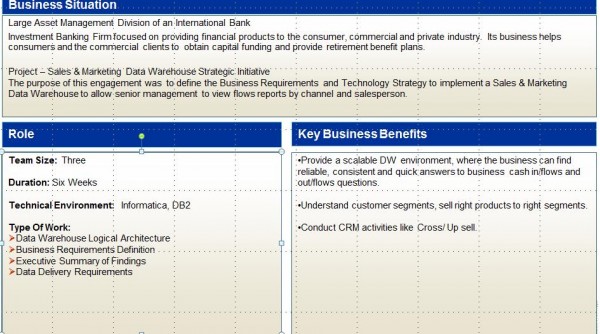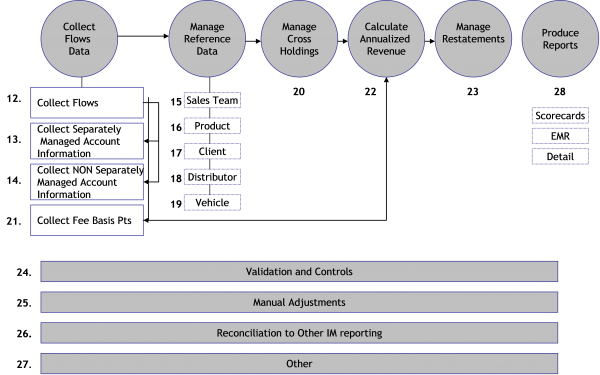(Part One of Seven)
Have you ever wondered why some data warehouse projects fails while others do not? I’ve often wondered that myself. I‘ve also observed that more often than not key ingredients are not described robustly enough or even worse not identified at all. By an ingredient I mean a requirement may not be defined clearly enough for a design to be described from it; or a design may be misinterpreted by a software developer. I am sure there are many more, including project management and estimation. The focus of this seven part series is to describe the key ingredients to designing and building a data warehouse to put you on the path to success.
The first part of this series will focus on defining the business case and gathering data warehouse requirements. The remainder of the series will focus on building the data warehouse reference architecture which I will refer to as the “six-layer cake”.
Key Ingredient One: Describe the Business Case
The first ingredient is for us to fully understand the business situation and be able to describe the business benefits/challenges our data warehouse will help us to implement/solve. Please refer to Figure 1 below.
Key Ingredient Two: Gather Business Requirements
We are all familiar with conducting Joint Requirement Planning (JRP) sessions to help us describe our data warehouse business requirements. I put an emphasis on “business” requirements versus technical requirements because at this stage we should only be focusing on the business concerns, objectives and constraints. Right? (Note: Of course one could say we should be aware of our technical constraints as well at this point but that is a topic for another blog).
After all is said and done we may end up with summary requirements statement that looks like the one in Figure 2.
In next blog post in this series, we will begin to build out our six-layer cake, the reference architecture that will satisfy the above requirements.


